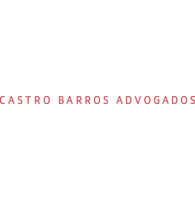
Brazil Teams 2019

| Companhia Brasileira de Aluminio




Companhia Brasileira de Aluminio
The legal team is separated into three major areas. Each area has its own legal manager.
The first area – legal business – is in charge of agreements, including financial agreements, corporate documents, merger and acquisitions, intellectual property, competition law, infrastructure regulation, governance and compliance. The legal manager, Vivian Neves has business vision and navigates through all areas of law. In addition, Vivian and her team has interaction in negotiations with strategic customers, suppliers and other stakeholders.
The second area – tax – is responsible for strategy tax and criminal tax litigation with high value impact for CBA. Furthermore, this area is responsible for legal tax supporting, tax planning and tax advisory area. Tax area is responsible for conduct tax audit too. The legal manager, Francis Soares, has a Bachelor’s degree in accounting sciences and has great knowledge on business and tax law, including extensive experience in tax mining.
The third area – litigation – includes civil, labour, environmental, social security and criminal. The legal manager, Camila Garofalo Maia, is responsible not only for the litigation but also for any other issues involving the areas she is in charge, as mentioned before (advisory, trainings, etc). For litigation, she is responsible for defining the litigation strategy and manage the issues to conduct business strategy for the company.
In 2017, CBA and Nexans Brasil entered into an agreement to implement a project consisting in the optimisation of CBA’s casting line capacity usage by CBA and Nexans Brasil to produce aluminium roads and alloys. This project’s agreement was approved by Brazilian Antitrust Authority, in October, 2017. In 2018, CBA has implemented a Compliance Antitrust Manual and monitoring process regarding the employees that represent CBA at external committees. In addition, it has been made a compliance risk assessment in the company along to action plans to each risk classified as critical and high. Also in 2018, CBA obtained a decision to allow the importation of aluminium scrap with the suspension of payment of ICMS.
2017 to 2019 – “Project Legal 4.0”. The team introduced digital tools to increase confidence and agility to the legal services rendered by in-house lawyers. It implemented software to control all legal matters (administrative and judicial suits, control of advisory in any areas of law, control for powers, and control of corporate documents, trade and marks). The software controls legal deposits, provisions and its variation. The software is also linked with the ERP of the company (SAP) to guarantee the confidence of the controls.
We have also implemented a software to manage the lifecycle of the contracts of the company and other legal tools are waiting for tests to be implemented in the next months.
In 2019, CBA had an un-appealable decision to allow the exclusion of ICMS from the PIS and COFINS calculation basis, and has been implemented a donations and sponsorship policy as well as a loss prevention system that tracks all financial transactions in donation accounts. Is has been implemented a due diligence process regarding all CBA suppliers (with active contracts or spot requests). In August 2019, CBA entered into an agreement to acquire the Brazilian rolling mill operations from Arconic Inc. located at Itapissuma, Pernambuco, in a US$50m transaction. The closing of the transaction and subsequent transfer of control to CBA, is still subject to customary regulatory approvals.
For the legal team to be successful, we understand that it is important that the team is able to work in partnership with the business units and for the purposes of CBA. Thus there are some soft-skills essential to achieve this goal, such as teamwork, empathy, engagement, constructive divergence and nonviolent communication.
In order to make it possible for the in- house legal team to be integrated with the firm’s business, we emphasise having deep knowledge about the business, knowing the objectives of the company.This knowledge enables the in-house legal team to actively participate at the outset of projects, effectively acting as support area to the company decision, adding value with practical solutions for the company.
The legal team uses CM, an ARIBA tool, to analyse and keep interaction with internal clients. CM is a great work tool to maintain KPI’s and the level of service of the in-house lawyers and legal offices. The legal team uses a tool called Espaider to control litigation cases, corporate documents and power of attorney. In addition, this work tool helps the team to control and approve all the payments related to the litigation cases in connection with SAP. There is an integration between the two tools that facilitates the internal approval flow.
The minimum charge for the cost of freight and new legal regulation about Financial Compensation for the Exploration of Mineral Resources – CFEM.